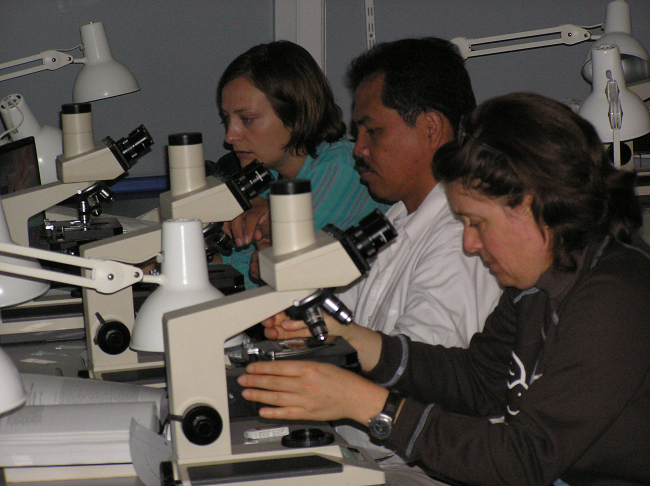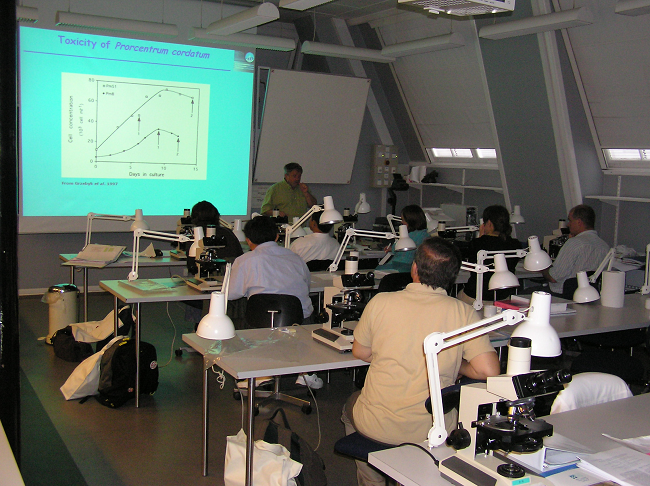IOC TRAINING COURSES ON HARMFUL ALGAE
-
- IOC Identification Qualification in Harmful Marine Microalgae 2026 (Registration open until 15 June 2026)
- IOC International Training Course and Identification Qualification in Harmful Marine Microalgae: 6-day ‘Brush-up’ Course (Registration closed)
- IRTA-IOC Science and Communication Centre on Harmful Algae International Phytoplankton Intercomparison (IPI) test 2026 (Registration open)
- 14th IOC UNESCO Advanced Phytoplankton Course: Taxonomy and Systematics, Roscoff, 2027 (tbc) (Registration not yet open)
Capacity development is a main element of the IOC Harmful Algal Bloom Programme. At each Session of the IOC Intergovernmental Panel on Harmful Algal Blooms (IPHAB) courses and training opportunities are planned either as IOC stand alone activites or in close partnership with other organisations and partners.
IPHAB principles for capacity building in relation to research on and management of harmful algae.
In phytoplankton research and monitoring programmes the reliable taxonomic identification of occurring phytoplankton species, and the reliable quantitative and qualitative determination of toxins, especially with respect to harmful and toxic phytoplankton, are the first steps towards a decision on which measures should be taken to mitigate potential undesirable effects associated with harmful algal events. Unfortunately the lack of taxonomic skills, and of toxin chemistry and toxicology expertise is acute in many parts of the world. The purpose of this years Courses is to improve the participants taxonomic skills in order to enable them to reliably identify phytoplankton species related to harmful algal events, and to build up capacity in quantitative and qualitative determination of toxins.
A limited number of participants are admitted to each course. Applicants should preferably have a relevant degree at a Master in Science level. The selection will be made by the scientific and technical organizers of the Course on the basis of the CV of the candidate. In the selection of the participants, priority will be given to individuals who have direct research, management or teaching responsibilities in relation to the occurrence of harmful algae.


